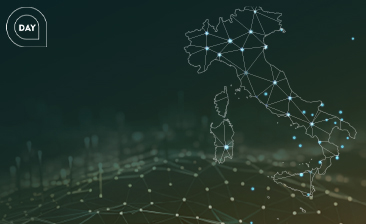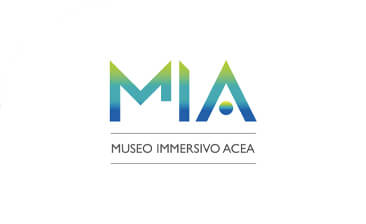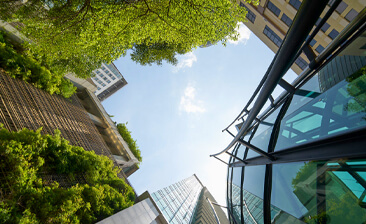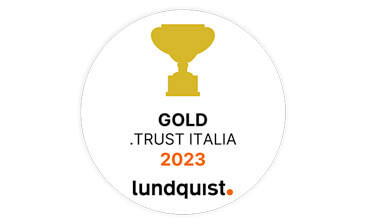Institutions and sustainability experts discuss the challenges posed by the green evolution of networks and cities during the Covid 19 emergency
The second edition of Acea’s Sustainability Day entitled “Infrastructures and next cities: the opportunities arising from a crisis” was held today. The event, which this year took place entirely in digital mode, was attended by representatives from the world of Institutions, research and green economy experts who discussed the new challenges of a sustainable economy and the change in the existing urban business and development models that have emerged with the crisis caused by Covid 19.
The proceedings, opened by Acea’s Chairperson Michaela Castelli, involved three different panels featuring a succession of speeches by the Minister of Infrastructures and Transport Paola De Micheli, the Chairperson of the Benessere Italia Control Room Filomena Maggino and the Undersecretary of State for the Environment and Land and Sea Protection Roberto Morassut, all of whom engaged with Acea’s CEO Giuseppe Gola. Other speakers included Enrico Giovannini, Spokesperson for the Italian Alliance for Sustainable Development (Asvis); Francesca Bria, Chairperson of the National Innovation Fund CDP; Andrea Guerrini, Member of the Arera Team; Gabriella Chiellino, Board Member and Chairperson of Acea’s Ethics and Sustainability Committee; Carlo Cici from The European House - Ambrosetti. The morning then closed with a presentation of ACEA’s actions and projects designed to accompany change, added to which were contributions from Rai Per il Sociale, presented by Serena Rossetto, from ENEA, with an intervention by Sabrina Romano, and from Vodafone with Marinella Soldi. The meeting was moderated by journalist Mia Ceran.
The Covid experience has shown us that it is possible, and indeed appropriate, to experiment and implement innovative life solutions, based on more sustainable logics. In fact, a new city conformation is emerging, the next city, based on a smart community concept in which the dynamics are changed according to a more participatory, inclusive and responsible social model. However, this active role on the part of citizens requires networks that can enable new services. Utilities are called upon to perform an essential function in the path towards the city of the future, via investments aimed at the evolution of infrastructures, which are the cornerstone of the new city project. The industry’s commitment is evidenced by the 50 billion Euro investment plan scheduled to be carried out during the next 5 years – 30 billion in the water sector, 12 billion in the energy sector and 8 billion in that of the environment – and by the projects submitted for the “Recovery Fund”, the true “accelerator” of a process already underway .
Acea is a part of this major project for the country’s relaunch and innovation. In fact, in the Business Plan presented at the end of October, the Company envisaged investments totalling 4.7 billion Euro by 2024. These include the amount of 2.1 billion Euro related to specific sustainability targets. Based on the estimates carried out, it has been calculated that the actions scheduled by the Group in implementation of the Business Plan will have a positive impact on Italian GDP for more than 6 billion Euro, directly or indirectly generating employment for over 21 thousand people.
The projects presented by Acea during the course of the day included, from a waste transition perspective, the new release of “Smart Comp”, a mini-plant for the transformation of organic waste in the place where it is produced, and the “Plastic to Methanol” technology, whereby methanol can be obtained from non-recyclable plastics. Within the scope of energy transition, Acea has promoted a plan for the development of electric mobility, providing for the installation of 2,200 charging stations by 2024, and the “PlatOne” project, which enables energy flexibility mechanisms and an approach to grid management capable of ensuring greater stability and resilience. Moreover the Group, as leading Italian water operator, is working on an innovative management model that can optimise water flows, whilst safeguarding water and predicting in advance resource availability.
Acea’s Chairperson, Michaela Castelli, commented: “This second edition of Acea’s Sustainability Day opens within a particularly challenging context, namely the situation caused by the health emergency. More than ever, the crisis leads us to consider sustainability as the driver of a new development model for rethinking the territories, with significant investments aimed at supporting infrastructures. However, to put this vision into effect requires the courage to make decisions within the time required to obtain the expected benefits. For example the matter of waste and water resources, heavily impacted by environmental aspects, highlight the urgency for their management from a system, value multiplication perspective, sharing the responsibility between all players. The companies are ready, but they need to find an ecosystem – above all in institutional terms, where more streamlined authorisation procedures are preferred – that facilitates their planning and implementation skills. This collective effort will help to launch the country towards the future and enhance its resilience in the face of potential new emergencies”.
“Acea is committed to a development path in the water infrastructure, photovoltaic, electric mobility and circular economy sectors – commented Giuseppe Gola, Acea’s Chief Executive Officer – Utilities can play a decisive role in the country’s hoped-for sustainable recovery. In this respect, it is very important to make effective use of the “Recovery Fund” resources for the implementation of strategic large-scale infrastructure projects. As leading Italian water services operator, Acea can play an important role in this situation, especially in Central and Southern Italy, where it is necessary to close the infrastructural gap in order to improve the management of the resource to the benefit of the environment and the community. But even the broadest plan of interventions will not in any case be fully effective without simultaneously triggering a cultural change. A new approach, oriented towards efficiency and the easing of bureaucracy with a view to ensuring certain and rapid timing, must in fact necessarily form part of the strategy implemented by our country and by Europe, since this is essential for the grounding of actions to be carried out”.
Discover the latest news and initiatives of the Acea Group

Acea for World Energy Saving Day

Visit the virtual museum about the history of the Acea Group

The channel for the commercial requests on land urbanisation

Acea turns the spotlight on the Rome Film Festival 2023

Acea is in the "Gold class" in the .trust research

Read more about our culture of inclusiveness